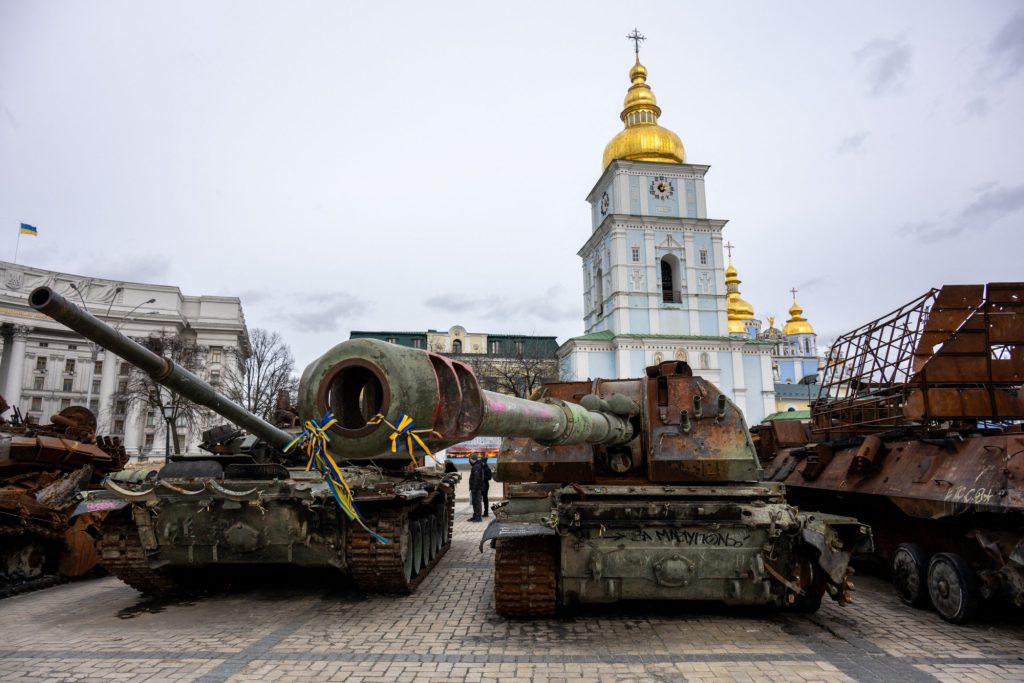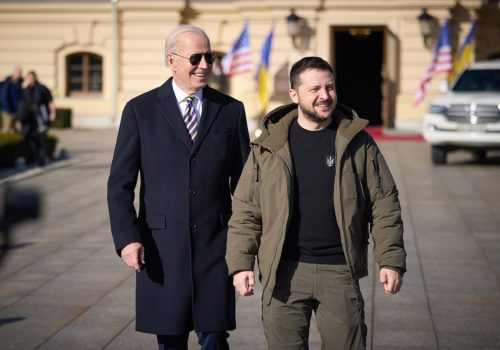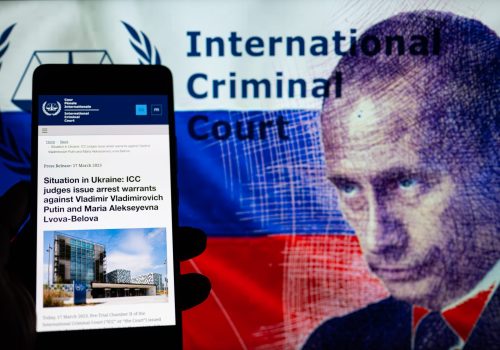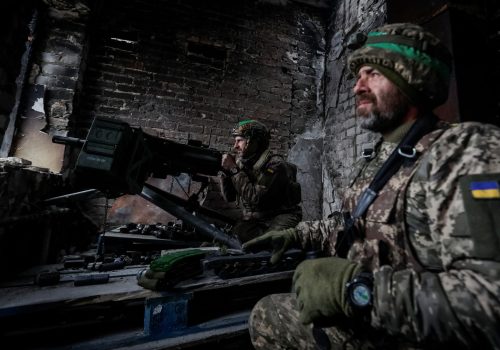For centuries, Ukrainians have fought for their independence. The current war is a continuation of this historic struggle. Today, Ukrainian heroes are dying for the cause of independence; it is this very cause that Russia is trying to deny and destroy.
How can we define independence? Of course, it means a country that is truly sovereign and controls all of its territory, but for Ukraine it means something more. For Ukraine, true independence will only be achieved when the country is secure and anchored in the West, its natural geographic, political, and strategic home. Genuine independence will only come with Ukraine as a member of the European Union and NATO.
EU and NATO membership are integral components of victory and must already become reality right at the moment the war ends. Ukraine’s international friends must provide sufficient weapons to create the circumstances where this becomes possible. But beyond military aid, they should also support Ukraine’s geopolitical goals. They must do so with a grand vision rather than incrementally. They must be ready for Ukrainian EU and NATO membership as soon as the fighting stops.
The terrible war we are currently experiencing is not primarily a fight over territory. This is true for both Russia and Ukraine. Russia’s main goal is not to take and annex a certain number of square miles from Ukraine. Russia wants to annihilate Ukraine as state; to make Ukrainians as a nation disappear.
For the Russian Empire, a free Ukraine poses an existential threat. Russia cannot tolerate the emergence of a post-Soviet, post-communist, Orthodox, Slavic country that is a successful, prosperous, free democracy and market economy. So the empire wants to drag us back to the past through war.
For Ukrainians, there is now a chance that their country will finally win its centuries-long fight for independence and become truly free. In past centuries, Ukrainians demonstrated the same bravery we see today, but they were alone in their fight against the empire. Today, the whole civilized world stands with Ukraine.
Stay updated
As the world watches the Russian invasion of Ukraine unfold, UkraineAlert delivers the best Atlantic Council expert insight and analysis on Ukraine twice a week directly to your inbox.
In order to be independent, Ukraine’s territorial integrity must be restored in line with the country’s internationally recognized 1991 borders. A tribunal for war criminals and reparations must also be established. But this will not create a truly independent Ukraine. For that to happen, Ukraine requires two more key steps.
First, Ukraine must receive credible security guarantees from the West that will prevent Russia from attacking again. Without such guarantees, there will be no real end to the war and no victory, just a pause. The second vital step is the radical reform of Ukraine’s institutions. This means the rule of law, democracy, and independent institutions. Freeing Ukraine from Russian occupation will not bring victory unless the country is also freed from the bad practices of the past.
Let’s address these steps one by one. The war has demonstrated that Ukraine needs NATO membership. Therefore, Ukrainian NATO membership must be an integral element of any lasting settlement. It is possible that security guarantees similar to NATO membership could serve as a pathway to this goal, if provided either by NATO itself or a coalition of countries.
In order to place radical institutional reforms on an irreversible path, Ukraine needs the country’s EU membership to be finalized or imminent by the end of the war. EU membership is not a substitute for reforms, but a necessary incentive for them. It is for Ukrainians to conduct reforms, while the EU role is to assess them and decide on integration. Experience has shown that the EU accession process is a uniquely powerful tool for radical institutional reform. And EU membership is the best insurance against a return to bad practices.
If these two goals are achieved, financial resources will flow to Ukraine. This will not only be in the form of international assistance and reparations, but also in terms of private investment. A free and secure Ukraine will enjoy very strong growth that will benefit all involved.
Eurasia Center events

Many of Ukraine’s international friends agree the country’s security and institutional reforms are the first priority after victory. They acknowledge that EU and NATO membership should be on the agenda, but only after victory. I strongly disagree. These steps cannot wait until after victory; they are essential components of victory.
For Ukraine, true victory means security and reform. It means NATO and EU membership, or at the very least, iron-clad security guarantees along with key practical components of EU integration in place. Without these steps, there will be no victory.
The EU must strengthen its existing commitment to Ukrainian membership and implement it with unprecedented speed and political will. NATO accession must be on the agenda of the coming July 2023 NATO summit in Vilnius.
This will not be simple. Current EU and NATO regulations make speedy accession difficult. But at key moments in history, merely following the rules is insufficient. With the right political leadership, existing rules can be adjusted and new standards adopted to meet the needs of the moment.
Never in the history of the EU has a country served as such an inspiration for Europe or sacrificed so much for Europe. Never in the history of NATO has a country fought so bravely and sacrificed so many lives to defeat a deadly threat that also endangers NATO.
Now is not the time to ask yourself how much more can be done within the existing limits. Instead, the real question is: How do we get this right? If this is not the time to change existing practices and procedures, when is the right time?
My message to Western leaders is simple: If you get Ukraine right, you will not only save lives. You will also show the whole world that the Western alliance and the European Union are the future. And for you, too, this will be a real victory.
Victor Pinchuk is a businessman, philanthropist, and the founder and member of the board of Yalta European Strategy. He is also a member of the Atlantic Council’s International Advisory Board. The Victor Pinchuk Foundation is a donor to the Atlantic Council.
Further reading
The views expressed in UkraineAlert are solely those of the authors and do not necessarily reflect the views of the Atlantic Council, its staff, or its supporters.

The Eurasia Center’s mission is to enhance transatlantic cooperation in promoting stability, democratic values and prosperity in Eurasia, from Eastern Europe and Turkey in the West to the Caucasus, Russia and Central Asia in the East.
Follow us on social media
and support our work
Image: Destroyed Russian armor in central Kyiv. February 20, 2023. (Photo by Ammar Abd Rabbo/ABACAPRESS.COM)




